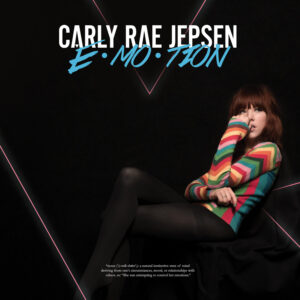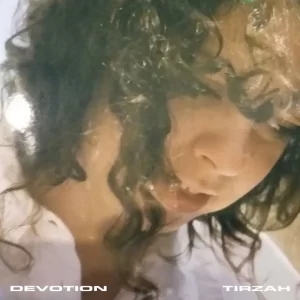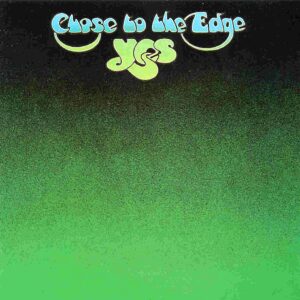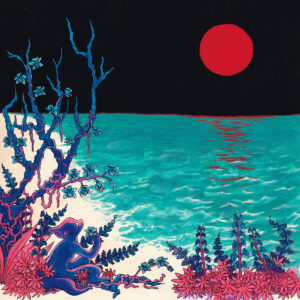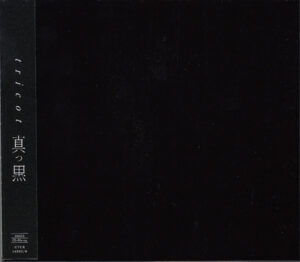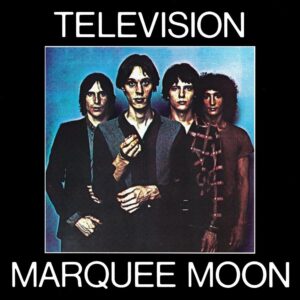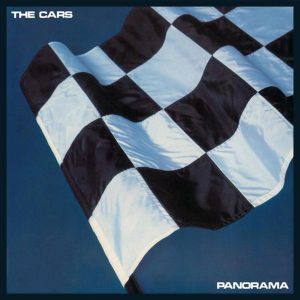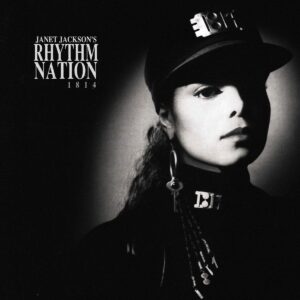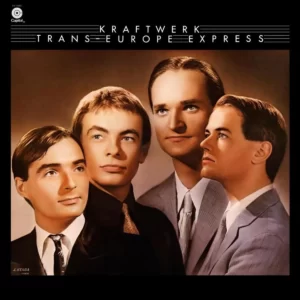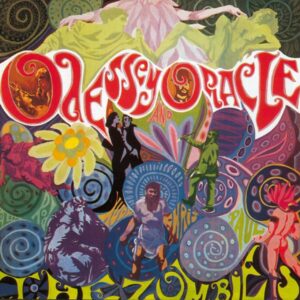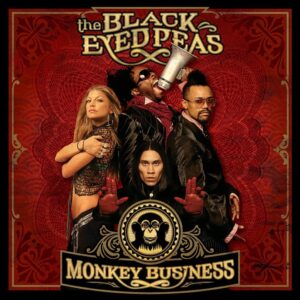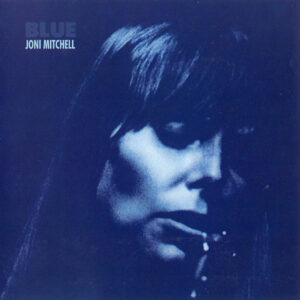
Math-rock band tricot formed in Kyoto in 2010, releasing their debut album in 2013. Tricot spent time as an all-female trio, but drummer Yuusuke Yoshida was added in 2017. Yoshida provides the engine for the twin guitar attack of Ikumi “Ikkyu” Nakajima and Motoko “Motifour” Kida and bassist Hiromi “Hirohiro” Sagane. Kida’s flexibility as a guitarist, ranging from funky Prince rhythm playing to menacing Robert Fripp riffs, enables the band to bounce between different styles, while Ikkyu’s delivery is simultaneously disarming and unsettling. Hirohiro’s bass lines are chunky and monstrous, while the band’s lineup settled with the addition of Yoshida in 2017.
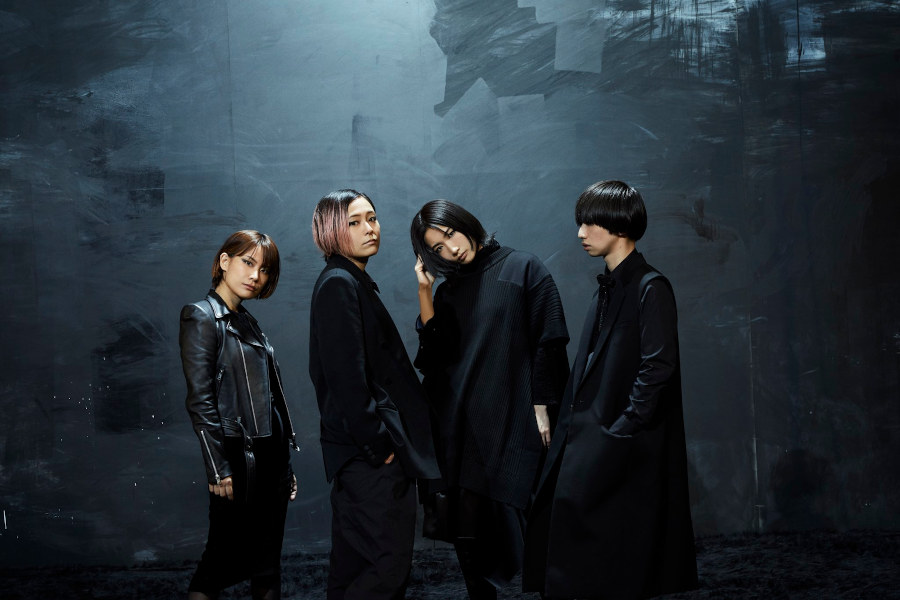
Tricot told Rolling Stone that their influences include the Eagles (for their harmony arrangements) and Red Hot Chili Peppers, although Japanese artists like Sheena Ringo are clearer precedents. They play complex “jumbled rock”, with intertwining guitar parts and time signature shifts. Ikkyu’s sweet and expressive voice gives them a pop sensibility and some emotional heft.
Tricot are a niche band, particularly outside of Japan, but they’re making incredible music right now – cramming virtuoso playing, personality, and hooks into succinct songs.
Tricot Album Reviews
T H E | A N D | 3 | 真っ黒 (Makkuro) | 10 | 上出来 (Jodeki) | 不出来 (Fudeki)
T H E

2013, 8.5/10
Tricot’s first album was released on their own label, Bakuretsu Records. It has a higher density of great riffs and musical ideas than any other tricot album, and it’s often a fan favourite. It’s their rawest album – dry production that separates the instruments is a feature of all their records, but it’s especially pronounced here. Additionally, original drummer Kazutaka Komaki isn’t as slick as the rest of the group.
The quartet have a ton of ideas – the intense thrash of ‘Pool’ and ‘99.974C’, and the wild ride of ‘Ochansensu-Su’ which oscillates between inventive guitar riffs and a harmonised chorus. Tricot are more conventionally verse/chorus in ‘Art Sick’, but they still stuff the song with exciting riffs and guitar leads. The gentler ‘Swimmer’ emphasises the poppier aspects of the band, while the vocal melodies at the crescendo of ‘Oyasumi’ are among tricot’s prettiest moments.
T H E is a strong debut, brimming with great riffs and great playing.
A N D
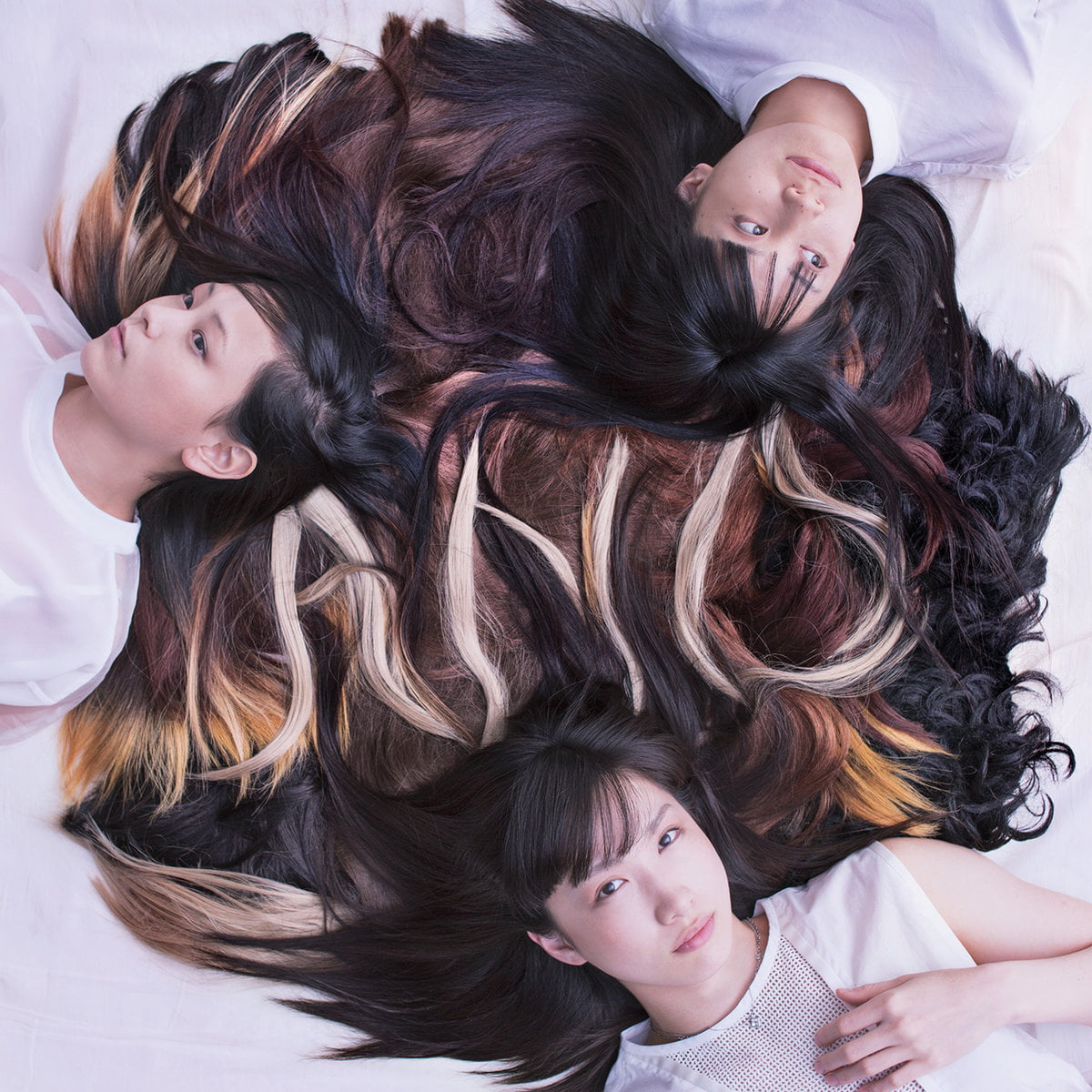
2015, 7.5/10
Tricot’s second album was recorded as a trio, with a rotating cast of guest drummers. A N D suffers a little from sophomore album syndrome, with fewer memorable riffs than the debut. Generally, it’s faster and more thrashy than the debut – songs like ‘Colorless Aquarium (色の無い水槽)’ edge toward punk. It offers the biggest break to date from the four-piece format, with occasional keyboards from H Zett M, known for playing in Ringo Sheena’s band.
Tricot’s pop sense is on full throttle on ‘Kobe Number’, almost a power-pop song. Ikkyu shows an aptitude for rapidfire rap on ‘Niwa’, backed by crunching guitars. ‘Pieeen A N D Ver’ showcases H Zett M’s piano, adding a touch of jazz to the tricot sound. There’s a rock epic in ‘QFF’, while ‘Break’ offers a poppy conclusion.
Tricot have recorded five albums to date; A N D is my least favourite of the five, but only because the other four are so strong.
3
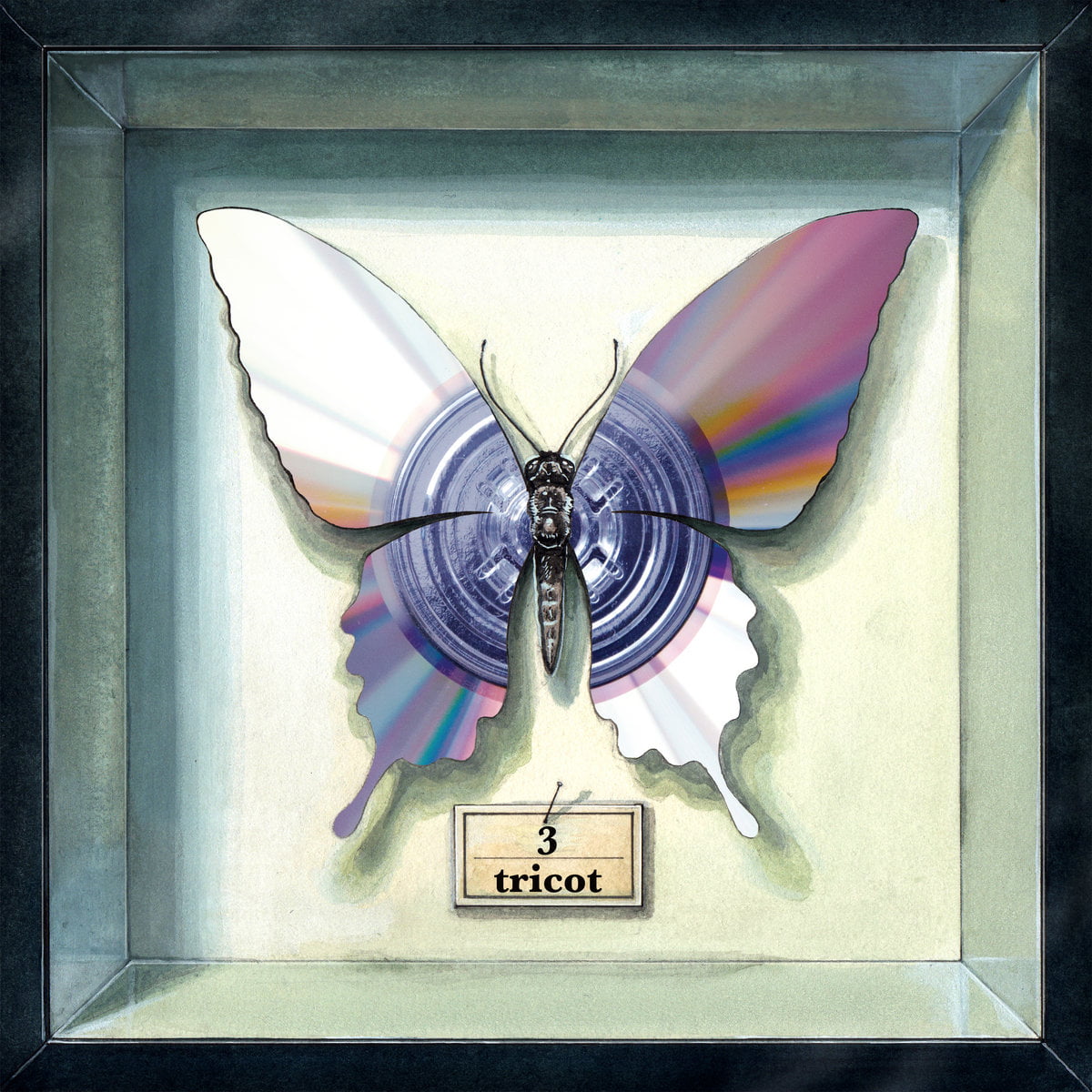
2017, 8/10
3 is tricot’s most straightforward record – it’d be hard to justify the math-rock tag if it was their only record. It’s more like a pop/rock album, sometimes electrified by virtuoso playing. Drummer Yusuke Yoshida makes the band crisper and punchier. Although he doesn’t drum on every track and wasn’t yet an official member of the band, he announces his presence on the spectacular introduction of the album opener ‘Tokyo Vampire Hotel’. The backing vocals are more prominent, intensifying the band’s poppy edge. 3 lacks diversity and runs out of steam a little at the end.
The best songs inject the band’s pop-rock with great chops. Hirohiro’s muscular bassline keeps the poppy ‘Melon Soda’ thrilling, while her rapid-fire bass runs drive ‘Dedede’. ‘Pork Ginger’ combines a poppy tune with some exciting playing, while standout track ‘Yosoiki’ is brimming with funky guitars, propulsive drumming, and great vocals from Ikkyu and backing vocalists.
3 isn’t diverse enough to rank as tricot’s best record, but the streamlined pop/rock it offers is often appealing.
真っ黒 (Makkuro)
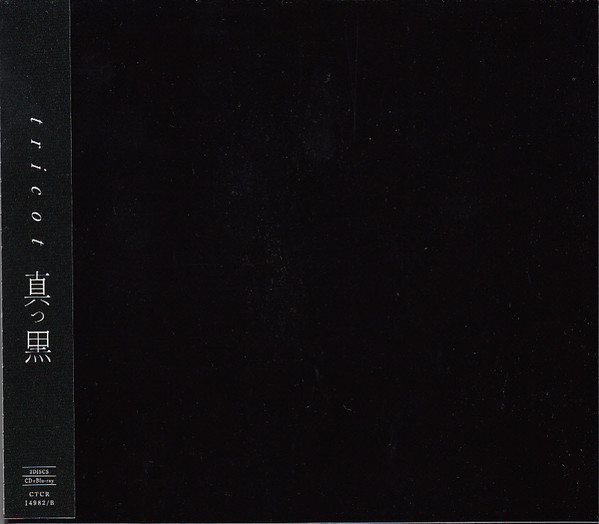
2020, 10/10
Tricot’s fourth studio album 真っ黒 (Japanese for Pure Black) marks tricot’s major label debut. The quartet changed their writing approach for this record; previously the songs would be written around Motifour’s guitar parts, but for 真っ黒, the melodies were written first. The group’s backing vocals also add more pop candy. Math-rock purists may prefer earlier albums like 2013’s T H E, but Tricot’s balance of melody and muscle on 真っ黒 is exemplary.
Tricot’s strengths are demonstrated on the closing title track, which translates as ‘Pure Black’. The sweet vocal melody is complemented by the group’s sharp musicianship – the cleverly arranged intro and intricate guitar parts work wonderfully to support the song.
Hirohiro’s virtuoso bass-line opens the record on ‘Don’t Mix! Danger’, a rapid-fire punkish opener that’s sweetened by the creative backing harmonies. The group mellow right down on ‘To a Non-Dangerous Town’ – it places Ikkyu’s voice in the spotlight, and it’s pretty. The squiggling guitar of ‘One Season’ recalls 1980s King Crimson, but 真っ黒 perfect a math-pop aesthetic here.
It’s far too clever for mass appeal, but 真っ黒 is a terrific major-label debut for Tricot. It wouldn’t take much to convince me that Tricot are currently the world’s most accomplished art-rock guitar band, and 真っ黒 is an early contender for album of the year.
10

2020, 9.5/10
Tricot titled their fifth album 10 to commemorate their 10th anniversary. The band’s impressive chops are used to serve the songs, wound tightly into a sub-forty minute album. As always, they’re able to get impressive stylistic range out of their four-piece band setup. ‘Agenai (I won’t give it)’ recalls funky 1980s Prince, while the lovely ‘Laststep’ is the only moment of respite in an otherwise hyperactive record. Tricot deliver their idiosyncratic take on pop with ‘WARP’ – funky guitars, a rubbery bass line, and a very convincing rap from Ikkyu.
Every track works, but the standouts are when Tricot play dense and heavy – ‘Itazura (prank)’ is psychedelic and full of twists and turns, while the closer ‘Karada (body)’ is built around a menacing riff. The experimental ‘Hako (box)’ expands Tricot’s palette with percussion and stacked vocals.
真っ黒 is now facing its most serious competition as my favourite album of 2020 from 10.
上出来 (Jodeki)

2021, 8.5/10
Tricot are on a roll – they’re back with their third album of this still-young decade. Like always, they hit their perfect balance between pop accessibility and arty weirdness – cramming their instrumental prowess into three and four-minute songs. Jodeki shows some advances – it’s more textural and eclectic than anything else they’ve released to date – but it’s another very strong record. Jodeki was released as a two-disc set – a bonus disc of instrumentals was released in advance of the 12-song album.
The lead single ‘Inai’ was written for the Japanese TV series ‘The Curse of Spring’, and its frenetic nature recalls Tricot’s older work. ‘Night Monster’ is Tricot’s idiosyncratic take on a power ballad, with a relaxed beginning building into a rousing climax and Ikkyu hitting some incredibly high notes. The funky guitar on ‘Walking’ and the title track aren’t far away from Red Hot Chili Peppers, while they’re enjoyably silly on ‘Dogs and Ducks’.
Japanese is a barrier to Western listeners but Tricot are the best band in the world right now, churning out three very strong albums in less than two years.
不出来 (FUDEKI)

2022, 7/10
Japanese band Tricot have been prolific recently – Fudeki (Japanese for failure) is their fourth album since 2020’s Makkuro. It draws on the stockpile of songs that the band wrote during the COVID lockdown, like a sister album to 2021’s Jodeki (success). The band describes it as “a collection of our non-arrivals”. The leftovers format makes for a relaxed record that tries out different styles. The single ‘End Roll’, which has been out for almost a year, is a prime example of the band’s recent work. There’s a poppy melody delivered at breakneck speed, with a chaotic arrangement that showcases the band’s virtuosity.
‘#Achoi’ is another snappy, pop-infused track, but Tricot also take the opportunity to stretch out. The opening track is slathered in feedback, while the title track is a lengthy jam. There’s incredibly complex music like ‘Android’, and the closing remix of the previous record’s title track is refreshingly peppy after a dark and dense record.
Fudeki is a haphazard clearing house of leftovers, but it’s fun to hear Tricot stretch out.
10 Best tricot Songs
真っ黒 (Pure Black)
Ochansensu-Su
WARP
Kobe Number
Yosoiki
Karada (body)
Swimmer
危なくなく無い街へ (Going to a Non-Dangerous Town)
Pool
みてて (Look At Me)
Back to 2010s Album Reviews….
Related Pages
About
Aphoristic Album Reviews is almost entirely written by one person. It features album reviews and blog posts across a growing spectrum of popular music.
Review Pages
Read about the discographies of musical acts from the 1960s to the present day. Browse this site's review archives or enjoy these random selections:
Blog Posts
I add new blog posts to this website every week. Browse the archives or enjoy these random selections:


